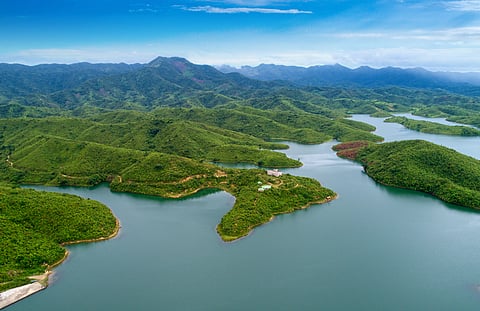
- Destinations
- Experiences
- Stay
- What's new
- Editor’s Picks
- Responsible Tourism
- CampaignsCampaigns
- Subscribe

For your winter holidays, get away from the hustle and bustle, and head out to these two places in Manipur for sensitive and sustainable travel. With their mesmerising landscape, they are perfect for mindful exploration. Here's a guide to what to explore in the region.
Tamenglong
The Tamenglong district is home to deep gorges, mysterious caves, waterfalls, orchids, and uncharted woodlands. Due to its extensive orange production, it is also known as Manipur's orange bowl. Tamenglong, 140 kilometres to the west of Imphal, serves as the district headquarters. The Hoabinhian civilisation, which is also present in other South Asian nations, is said to have originated in the Tharon cave here. There are five outlets in the 655.6m-long cave. The layout of the entire cave is depicted on a stone at the entrance for the convenience of visitors.
You can also hit up the Zeilad Wildlife Sanctuary which is situated in Makoi and is home to a variety of animals, including tigers, leopards, little Indian civets, langurs, hoolock gibbons, and great Indian hornbills. Residents of this picturesque lake include turtles and pythons. Between March and April, migratory birds can also be seen in this area. On the western side of Tamei town is the lovely Buning Meadow. The meadow sometimes resembles an orchid bed during specific periods of the year. The district also hosts the Barak river which breaks into seven waterfalls, within close proximity of each other. Owing to its rapid tides, the Barak river is perfect for white-water rafting and other watersports. One of the seven, Khoudong waterfall is relatively unexplored.
Senapati
Most of the region is covered with dense forests with a diverse range of flora and fauna, including very rare species. Sacred to the tribes of Manipur and Nagaland, Makhel Caves are worth a visit. According to legend, this site marks the spot from where the Nagas dispersed to other regions in the Northeast. An old pear tree here stands as a memorial to the event. Other attractions include sacred banyan trees, believed to have grown from the tomb of the Naga mother the Dispersal Tree at Sajouba (2km north of Makhel) the Farewell Monolith, the Triomonolith (3km south of Makhel), the Hailstorm of Stone, and the Lucky Stone.
Nothing quite prepares you for your first glimpse of the Sadu Chiru Waterfall. Flanked by steep, vegetation-covered cliffs, this delicate-looking cascade is worth the hike up to see it. It is 81km south of Senapati city. Visitors can reach this spot by hiring a car from Imphal, which is 25km away. Cars can go no further than Nambol from where autorick-shaws are available for hire. Even these can go only to a certain point after which one must approach on foot. The walk up to the falls involves climbing steep steps, so wear comfor-table shoes. Do not miss the charming little hamlets and scenic vistas on this leg of the journey.
Situated on a cliff in the westernmost tip of the Senapati District, the village of Yang Khullen is home to the Zemei tribe. The village (khullen) is 76km north of Senapati city. To the east of Yang Khullen lie Maram Khullen and Liyai Khullen. The former is one of the largest villages in the district. Liyai Khullen has stone monoliths, water pools and Banyan trees. The Barak river originates here.
A beautiful hill station lying on the Manipur-Nagaland border, Mao is just 44km northeast of Senapati. It is home to the Mao people, one of the major tribes constituting the Nagas. The small township is set along NH39 and is referred to as Mao Gate, owing to its location on the state border. The people of this village have a fascinating tradition of setting up monoliths or flat boulders, which serve as monuments to commem-morate an event or ritual.
